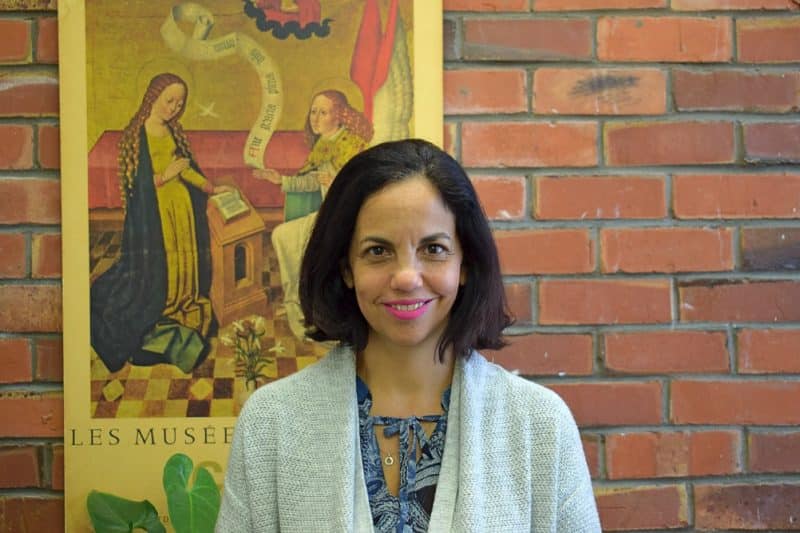The Catholic Church needs to become a “victim-centred community” if it is to heal the wounds of the victims of clerical sexual abuse and begin a “deep renewal”.
This was the message of Te Kupenga — Catholic Theological College theologian and abuse survivor Dr Rocio Figueroa at the 55th conference of the Canon Law Society of Australia and New Zealand on Zoom on September 7.
She said that the sexual abuse crisis in the Church is not just about perpetrators and victims, “but an entire structure that has enabled the abuse”.
“On the one hand, we have the silence and cover-up of many in the hierarchy that prefer to protect perpetrators and the image of the Church than to defend survivors. On the other hand, we have an unhealthy culture that has enabled abuse and its perpetuation,” she said.
Dr Figueroa said that there is a range of reactions to sexual abuse within the community from disbelief, pain, abandonment of the Church, defence of the perpetrators, to people who do not know what to do and instead ask the victims “to forgive and forget their rage”.
“In many cases, the role of the bystanders in the community has become a secondary victimisation for survivors,” she said.
The theological college lecturer said that studies show that sexual abuse causes physical and deep mental health problems.
“We cannot say that it is a problem of the past. We have survivors within our society suffering the long consequences of abuse,” she said.
She said that a common way people minimise the scale of the problem is to point out that it happens in other institutions as well.
“This approach is defensive and limited and does not recognise the particular damage that clerical sexual abuse causes,” she said.
Dr Figueroa also stressed that, on top of the harm to physical and mental health, clerical abuse does spiritual harm.
“Many of the victims have questioned God’s benevolence and have lost that faith that was a component of their identity. For many victims, the Church has become a desecrated place into which they will never walk again because they cannot trust Church people any more,” she said.
Dr Figueroa laid out three factors that enabled the abuse: clericalism, patriarchal Church, and sex as taboo.
She said that one of the obligations of the Church is to “rethink our understanding of priesthood”.
“We cannot think of ordination as a sacrament with magical effects. A priest does not become another Christ during ordination. The unique cultic role of the priest as the ‘alter Christus’ contributed to the idealisation of the priest,” Dr Figueroa said.
“The dual identity of the priest as a representative of God and also as perpetrator of abuse made it hard to denounce the abuse. This culture of clericalism, within a male-dominated clerical structure, made it difficult to understand or respond to the wrongdoing of the priests,” she said.
Dr Figueroa said that to “repair” the damage to the victims’ dignity, we need to “listen to their voices, believe them, apologise correctly and do justice to them”.
She said that one of the most important priorities of victims is to receive an authentic apology as this gives the abused person vindication and a perception of “a restoration of their dignity and moral worth”.
“Apologising without apologising takes the form of minimisation: ‘yes we have hurt, but there are many more violations in families’. A false apology will often use the passive voice: ‘mistakes have been made’,” she explained. “When responsibility is not accepted, when others are blamed, and attention is diverted from personal responsibility, we are in front of a false apology.”
Dr Figueroa said that she was also shocked at the low compensations offered in New Zealand, adding that the survivors have felt humiliated by this.
“A financial compensation cannot be a symbolic one. It needs to be a compensation that can make a difference in the life of a survivor. A symbol or a token is not a real reparation,” she said.
Dr Figueroa added that, along with financial support, the Church should pay for a legal team composed of canon lawyers and civil lawyers for the survivors.
“For me, if there is no reparation, financial compensation, legal advice, real apologies and structural changes within our Church, all our attempts to respond to survivors remain empty words,” she said.
“We need to be the community that Jesus wanted: real compassion towards survivors, real justice for victims who have suffered enormously, real humility to accept our wrong doings and begin a deep renewal.”

Reader Interactions